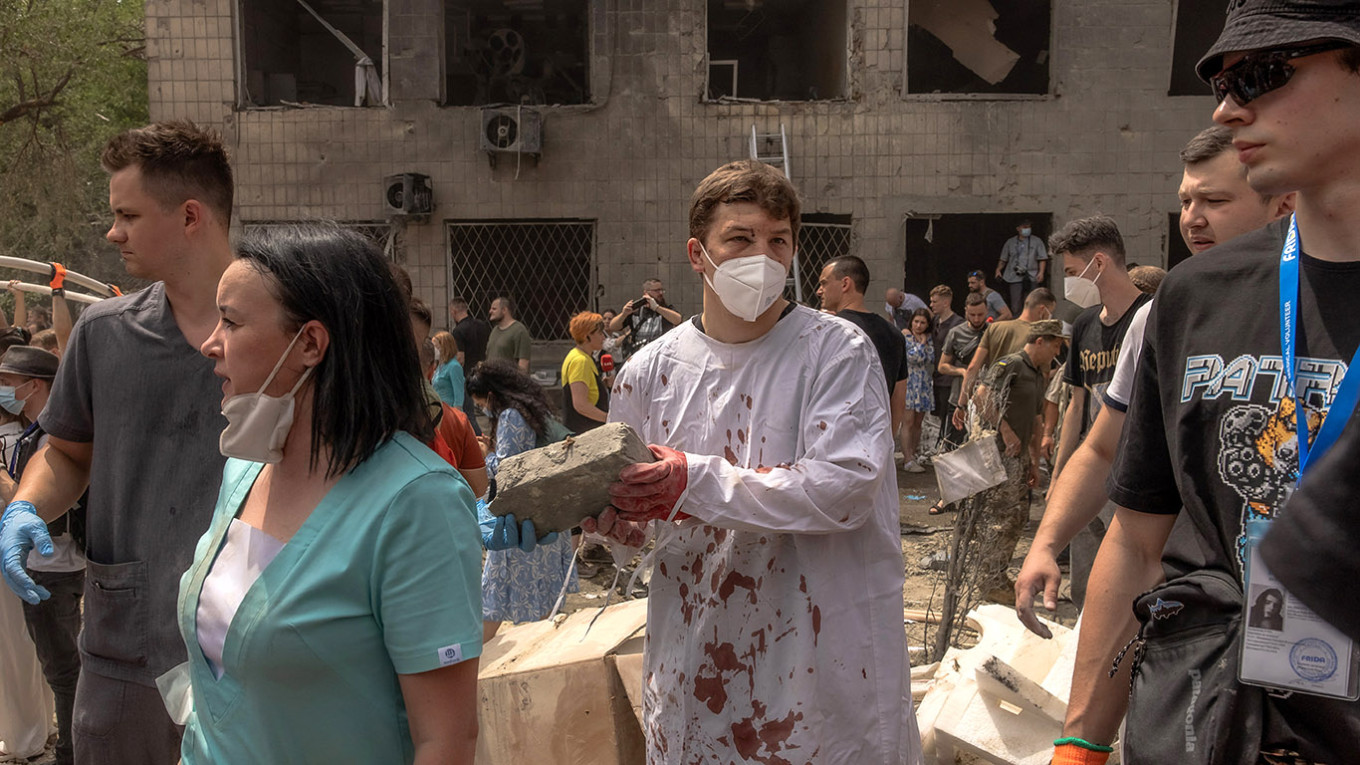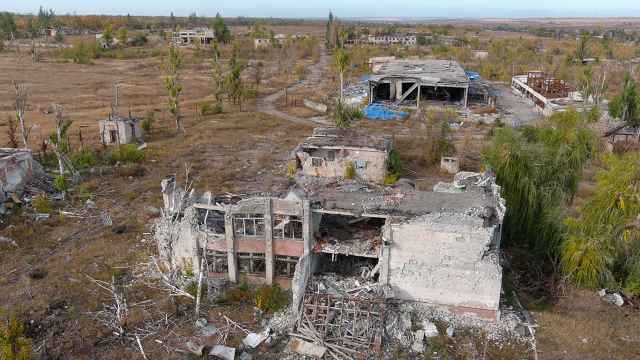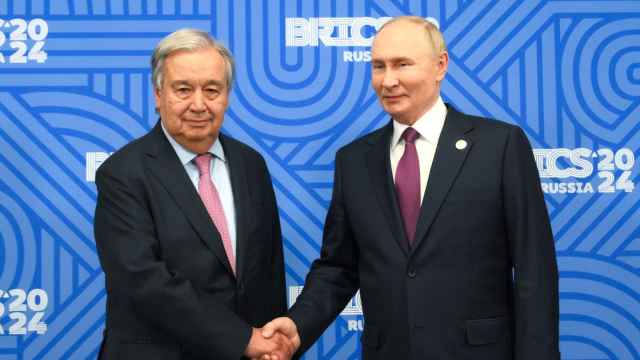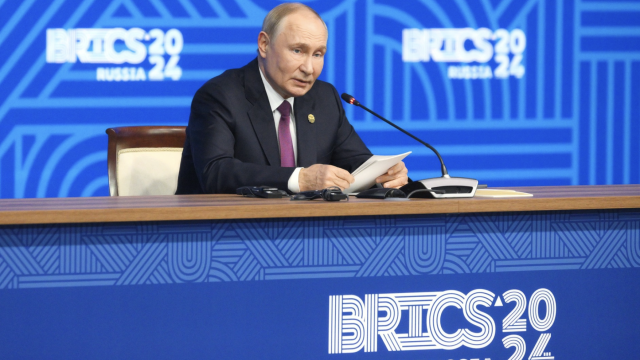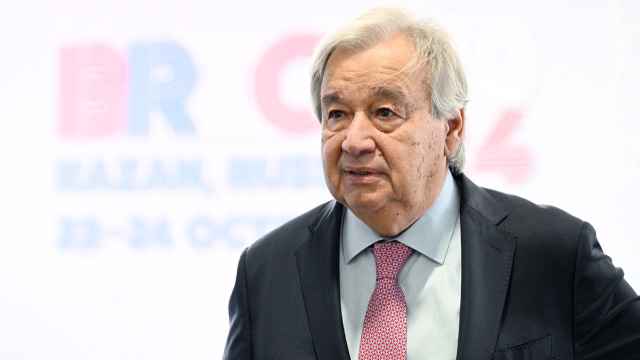The news from Kyiv on July 8 about another attack on Ukrainian cities, with missiles hitting medical infrastructure – including Ukraine's largest children's hospital – is shocking. Alas, these events come as no surprise when we look at how attacking hospitals is not unintentional, but part of a strategy Russia has deployed before.
We saw this in Syria following Moscow’s 2015 intervention. If the trend in Ukraine continues, it is plausible that the Russian army will continue to use its toolbox that we have already seen in Syrian cities.
Russia sent military forces to support President Bashar al-Assad's regime at a time when Syrian rebels were mere miles away from the presidential palace in Damascus. Taking advantage of the civil war, Moscow expanded its existing positions and built new bases for its forces deep inside Syrian territory, which are still active today. These bases played an important role in stabilizing the Syrian regime and pushing rebels out of many areas of the country.
The firm foothold in Syria that the Russian army, together with Iran, built over three years came the cost of civilian casualties and destruction. This alliance with Tehran is active once again in Ukraine, as Iranian-origin drones targeted civilian infrastructure in Ukrainian cities.
From 2015 until February 2022 Russian forces used Syrian territory for three main purposes: creating a bridgehead for military operations in other areas such as Libya, strengthening military and political positions in the Mediterranean, and weapons testing. It is hard to forget how proudly President Vladimir Putin said that Russia had successfully tested more than 200 weapons in Syria. Some of these missiles and shells have been used in Ukraine since 2022, and the Russian army has been sending weapons captured on the Ukrainian front to Syria and Iran for research.
But in addition to weapons, Russia tested concepts in Syria that it would repeat against the Ukrainian population. The attacks on hospitals are emblematic of this. As a result of strikes and military operations by the Assad regime and Russian aircraft, nearly 90% of the medical infrastructure in Syrian cities with increased rebel activity has been damaged and put out of action.
In major cities such as Damascus and Aleppo, entire neighborhoods have been destroyed. The similarities with the war in Ukraine are many, and the difference is that, in the case of Ukraine, the Russian army has been implementing for months a strategy of destruction that has been developed in Syria for several years.
The destruction of civilian infrastructure will continue because that is the way of warfare. The brutality is directly linked to events on the front. Russia’s advance into the Kharkiv region has stalled, nor is the advance in eastern Ukraine going according to plan. The Ukrainian army has several problems, notably a lack of manpower and weapons, but it has managed to repel most of the attacks on the front lines.
The Kremlin provided diplomatic cover to the Assad regime after Damascus used chemical weapons against its own citizens. Furthermore, Russia targeted hospitals and other critical infrastructure, including those whose coordinates were shared with the Russian command by the UN, to undermine the morale of rebel forces and force them to disperse.
Russia is trying to do the same in Ukraine today, acting with special brutality when its war is not going to plan. The Russian army is attacking civilian areas to disperse the resources of the Ukrainian forces currently concentrated along the front. Moscow knows that Ukraine needs additional air defense systems to defend its cities and skies, and it is exploiting this weakness with devastating consequences.
Despite all the terrible losses, Kyiv’s Western allies are still preventing the Ukrainian armed forces from launching long-range strikes against Russian military infrastructure, and this is a mistake. All signed security treaties and such support are worthless without permission to counter-attack deep inside Russian territory. Otherwise, strikes like today's will continue without serious consequences for the Russian army infrastructure and bases.
Attacks on hospitals and other infrastructure will not stop even if there are negotiations. The purpose of the invasion of Ukraine was to seize, occupy, and exploit territory that Russia believes is its own, not to sit around a table talking.
Attacks like the one on the children's hospital in Kyiv and the medical center in Dnipro are just part of this strategy and should remind Ukraine's allies – some of whom have wavered – that Kyiv urgently needs military support and guarantees that it will be able to defend its skies. Reality is not just knocking at the door – it is blowing up cities.
A Message from The Moscow Times:
Dear readers,
We are facing unprecedented challenges. Russia's Prosecutor General's Office has designated The Moscow Times as an "undesirable" organization, criminalizing our work and putting our staff at risk of prosecution. This follows our earlier unjust labeling as a "foreign agent."
These actions are direct attempts to silence independent journalism in Russia. The authorities claim our work "discredits the decisions of the Russian leadership." We see things differently: we strive to provide accurate, unbiased reporting on Russia.
We, the journalists of The Moscow Times, refuse to be silenced. But to continue our work, we need your help.
Your support, no matter how small, makes a world of difference. If you can, please support us monthly starting from just $2. It's quick to set up, and every contribution makes a significant impact.
By supporting The Moscow Times, you're defending open, independent journalism in the face of repression. Thank you for standing with us.
Remind me later.



